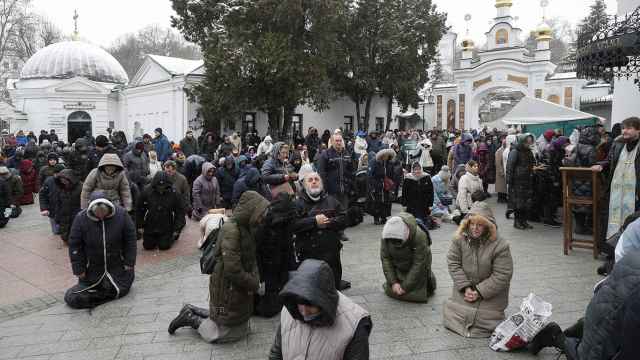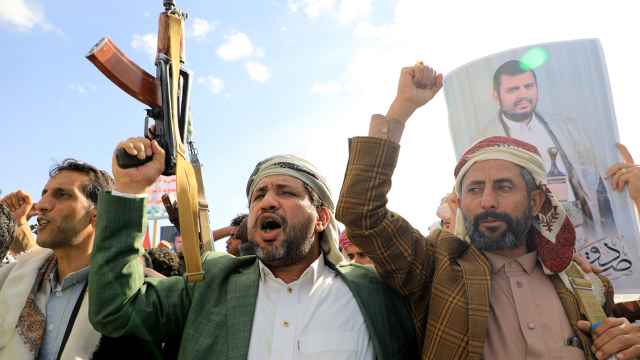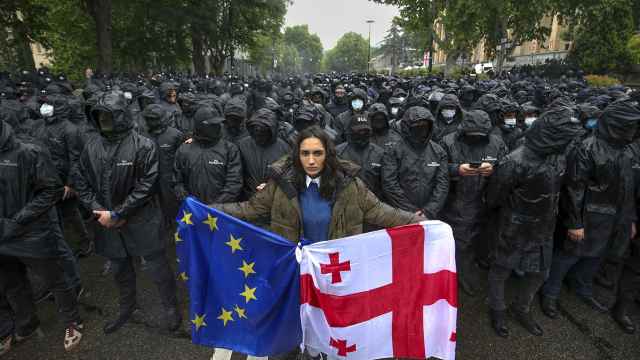Last week, the World Bank published its annual Doing Business survey which saw Russia jump five places to 35th place.
This new ranking is a reflection of the government’s commendable efforts to improve the country’s business environment since 2011. Back then, Russia came in 124th out of 190 countries.
Curiously, the ten indicators that the World Bank uses to measure the ease of running businesses around the globe almost never surface in discussions with our clients, which are mainly foreign business executives looking for advice on risk management in Russia and former Soviet states.
The World Bank’s survey evaluates administrative and regulatory procedures, like the number of days it takes to register a company in Moscow. Or how long it takes to get plugged into the electric grid. That’s where Russia fares quite well.
Greater challenges include getting construction permits — Russia’s Construction, Housing and Utilities Minister, Mikhail Men, said in an interview with BFM Radio on Sunday that companies now only need to collect 103 permits to start construction, down from some 200 several years ago. An improvement, sure.
But the Doing Business ranking doesn’t capture the qualitative aspects of Russia’s business environment, and it is these aspects that are most troubling for companies working in Russia — none more so than the political risks, both international and domestic.
Political concerns grew after 2014, when Russia and the West engaged in a simmering diplomatic and economic conflict over Ukraine.
The international risks are largely defined by tightening U.S. sanctions, now codified into a law that will be in place for years if not for decades. As long as sanctions are in place, so too will fears of Russian retaliatory action.
Most businesses agree that any escalation in the sanctions standoff depends more on American domestic politics than on Russia’s actions in the global arena.
But a handful of developments, taken separately or conflated over time, could push the U.S. political machine to increase punitive measures.
They include, but are certainly not limited to, new revelations of Russian meddling in U.S. politics, the conflict in Syria or the Dutch-led probe into the 2014 catastrophe when a civilian Boeing airliner was shot down over eastern Ukraine.
In Russia, there have been many responses to what authorities say is a growing U.S. threat after the events in Ukraine in 2014. They range from attempts to influence public discourse online in foreign countries, to tightening the screws on NGOs at home. Rights groups here are routinely derided as the West’s fifth column, which supposedly help Russia’s enemies undermine its sovereignty.
But with the exception of Putin’s decision to introduce a sweeping ban on food imports from the EU and the United States, and the government’s failing attempts to replace American software with Russian-made technologies, escalating tensions have had only limited impact.
Most foreign businesses, including American companies in Russia, have largely been spared the systemic targeted pressure that came as a result of worsening relations between Moscow and the West.
Some of the damage after Ukraine has been collateral. For example, the tit-for-tat cuts of U.S. and Russian diplomatic staff has made it more difficult for Russia’s business community to be issued visas to the United States.
Foreign businesses operating in Russia, who have already observed its leadership for some time, have developed an understanding of the rationale behind the Kremlin’s decisions.
This belief is the result of following years of the Kremlin’s rhetoric about the nation’s interests and sovereignty. Putin clearly subscribes to core attributes of political realism which prevents Russia’s leadership from taking actions that deliberately hurt the country's interests.
But this idea has been eroded since the beginning of the conflict in Ukraine, with the food import ban delivering the first massive blow. Another blow could be delivered in a Moscow courtroom with the lawsuit filed by Siemens against the Rostec state corporation.
The German company has accused its Russian partner of illegally supplying Siemens turbines to an electric power station in Crimea — in breach of Western sanctions and a 2014 agreement.
In its counter-lawsuit, the Rostec subsidiary that transferred the turbines claims the agreements are legally void.
It says Siemens cannot demand that Russian companies respect EU directives, and argues that Russia’s national security and the health of the Russian people depend upon the delivery of these turbines.
The view held by Rostec’s subsidiary could seem rational considering Russia’s national interests today. But its approach exposes Western companies to the high risk of being penalized in Europe and in the United States.
That risk might discourage such businesses from cooperating with Russian partners or make these partnerships more costly to compensate for the heightened risk.
Wielding business as a tool in a geopolitical game is nothing new. In the long term, however, Russia would benefit from the Kremlin’s more strategic management of political risks to improve the business environment in the country and improve its Doing Business ranking.
If it doesn’t, there is an increased chance of alienating Western businesses in Russia. In that case, the Kremlin would not only face fractured opposition in Washington and Brussels, as it does now, but a more united front across Berlin, London and Paris, too.
Nabi Abdullaev is an Associate Director at Control Risks and a former editor-in-chief of The Moscow Times.
The views and opinions expressed in opinion pieces do not necessarily reflect the position of The Moscow Times.
A Message from The Moscow Times:
Dear readers,
We are facing unprecedented challenges. Russia's Prosecutor General's Office has designated The Moscow Times as an "undesirable" organization, criminalizing our work and putting our staff at risk of prosecution. This follows our earlier unjust labeling as a "foreign agent."
These actions are direct attempts to silence independent journalism in Russia. The authorities claim our work "discredits the decisions of the Russian leadership." We see things differently: we strive to provide accurate, unbiased reporting on Russia.
We, the journalists of The Moscow Times, refuse to be silenced. But to continue our work, we need your help.
Your support, no matter how small, makes a world of difference. If you can, please support us monthly starting from just $2. It's quick to set up, and every contribution makes a significant impact.
By supporting The Moscow Times, you're defending open, independent journalism in the face of repression. Thank you for standing with us.
Remind me later.








